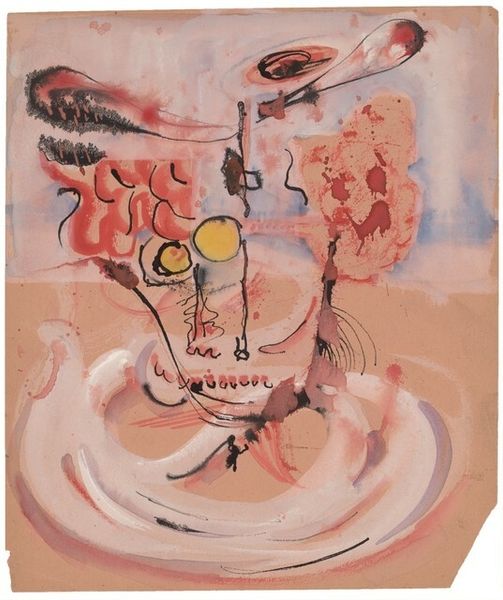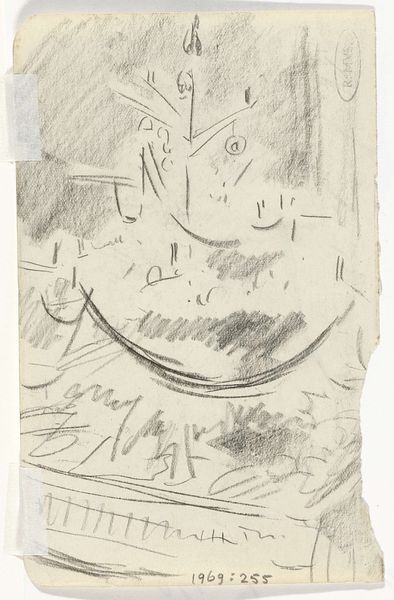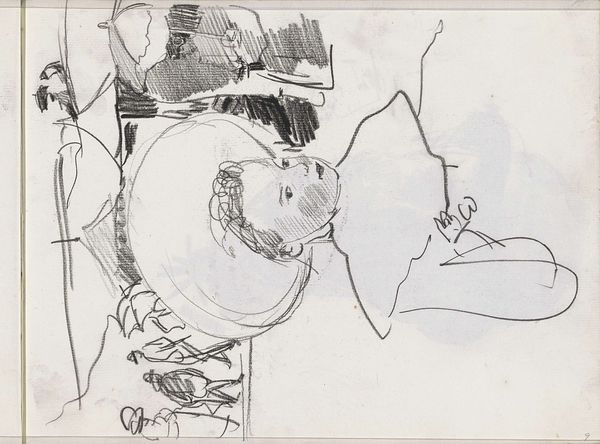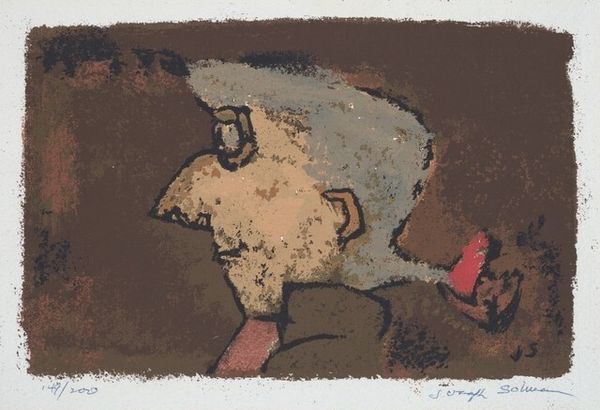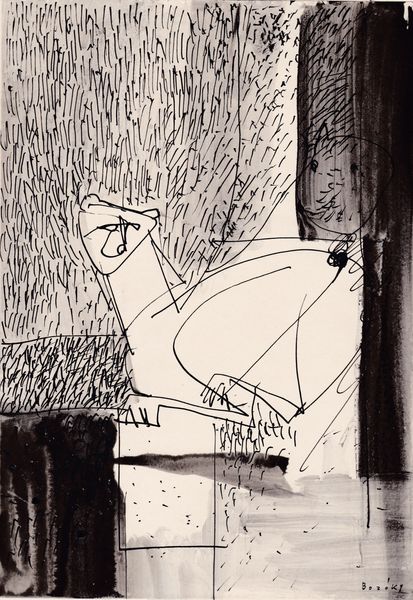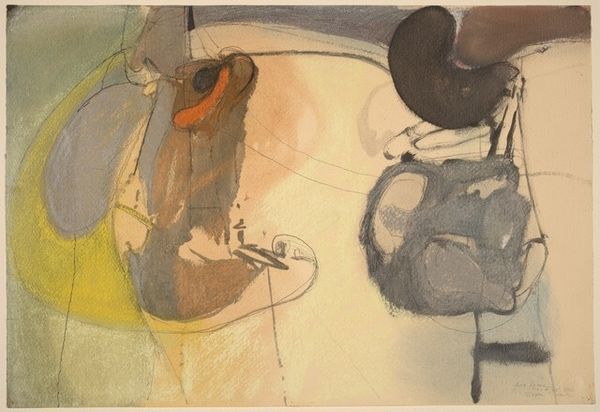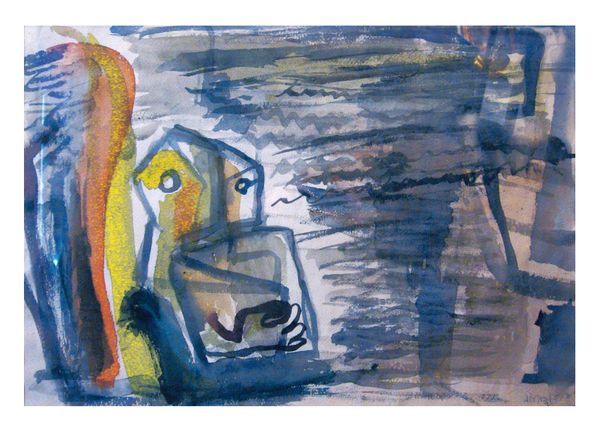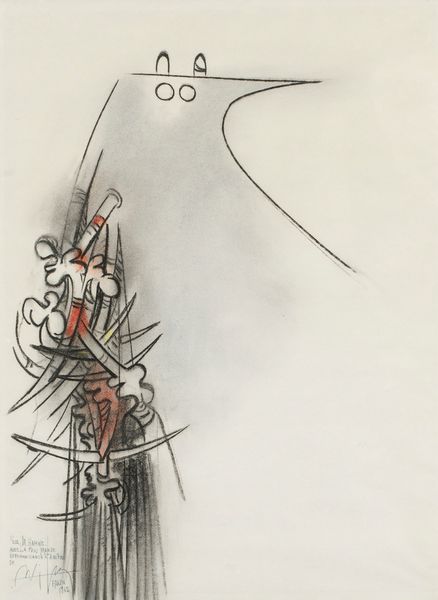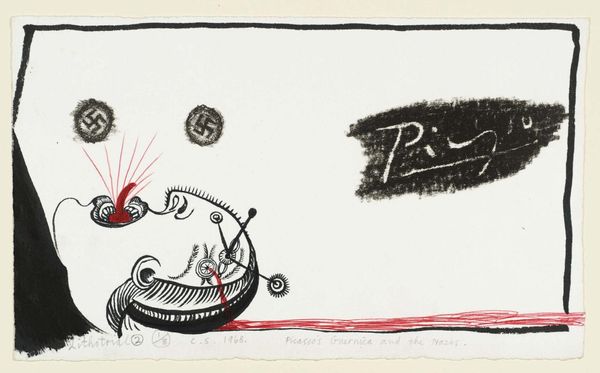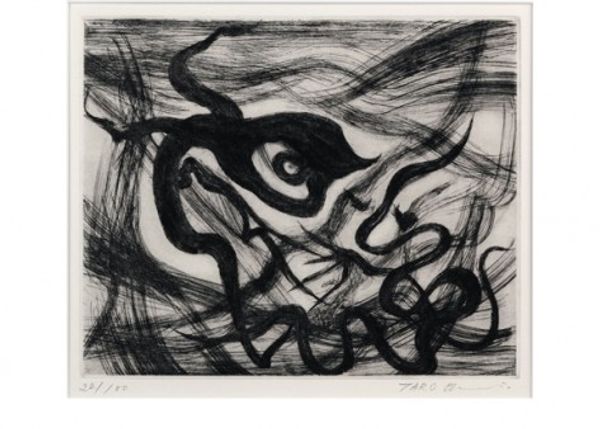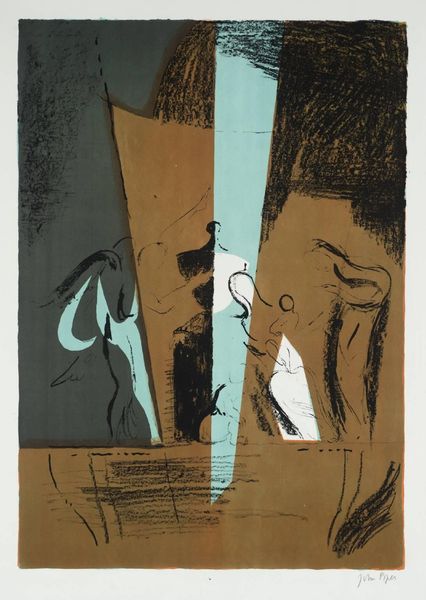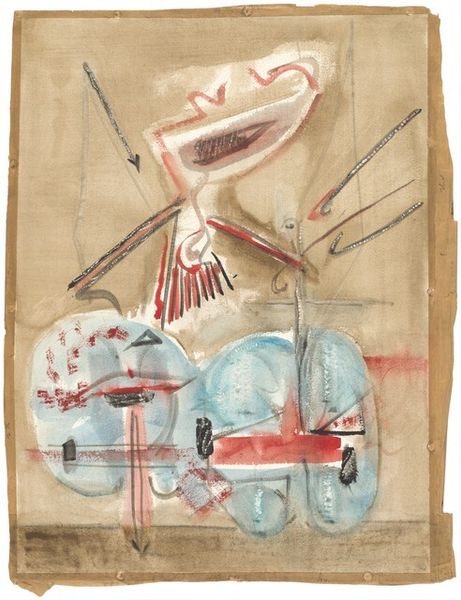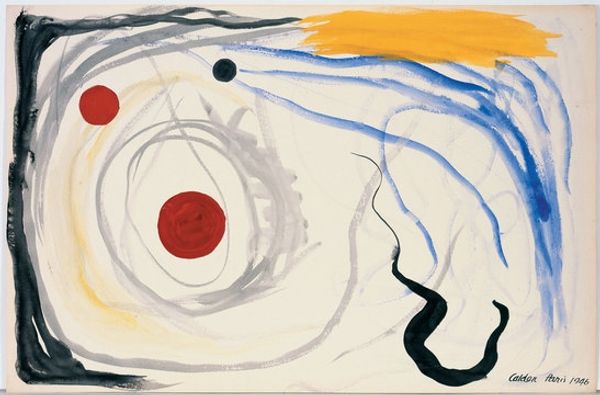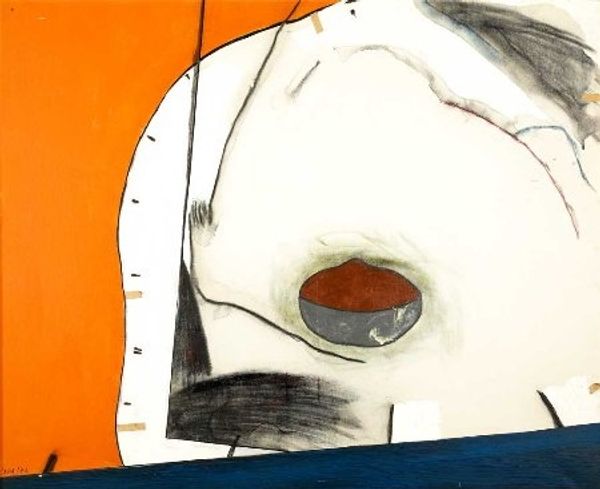
drawing, watercolor
#
abstract-expressionism
#
drawing
#
caricature
#
form
#
watercolor
#
abstraction
#
line
#
watercolour illustration
#
watercolor
Dimensions: overall: 27.8 x 37.6 cm (10 15/16 x 14 13/16 in.)
Copyright: National Gallery of Art: CC0 1.0
Curator: Looking at this watercolor and ink drawing by Mark Rothko, made around 1944, I am struck by how provisional it feels. There's a rawness here that prefigures his later color field paintings but remains quite different. What do you see? Editor: Instantly, I’m drawn to the central figure – it almost seems like a face or mask emerging from the muted background, an eye staring. The serpentine line work and chaotic shading, combined with those reddish undercurrents, evokes ancient fertility symbols and primordial forms. Curator: Rothko was, at this time, deeply engaged with mythological subjects, surrealism, and the legacy of early modernism, often grappling with expressing fundamental human conditions following the harrowing war events unfolding across the globe. The very lack of distinct figuration feels almost a comment on trauma's impact on our perceptions and the dissolving of old orthodoxies. Editor: Exactly! Consider that eye again. It sits within what could be interpreted as a larger abstract vessel shape. It pulls me in two directions; one as a self-contained unit expressing identity, another toward the unsettling sensation of the eye’s voyeurism set in the wider landscape of human destruction of self and others. Curator: I find myself particularly drawn to how this abstractness challenges our desire to see specific meaning, thus offering commentary on how systems, including social ones, seek out, but can be very clumsy in establishing it. Even Rothko eventually turned against definitive interpretation. Editor: Perhaps this resistance to singular readings is a central theme. It serves as a portal – reminding us that imagery resonates precisely because it stirs complex associations rooted in collective memory and recurring patterns of the human psyche. Curator: That is powerfully argued. These seemingly unstructured works allow viewers a sense of interpretive agency—it is no wonder such art has become significant within a discourse calling for democratization of not only representation, but representational structures as well. Editor: Ultimately, Rothko gives us not a resolved narrative, but the vocabulary of the universal human experience: fear, wonder, dissolution, emergence, and enduring symbols through which we continue to try and make sense.
Comments
No comments
Be the first to comment and join the conversation on the ultimate creative platform.
